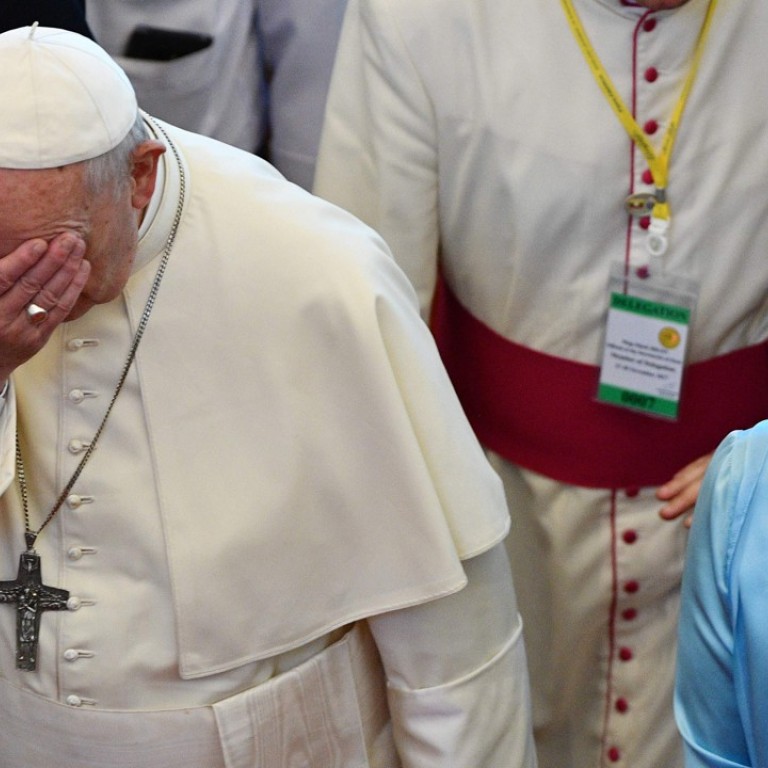
Pope Francis disappoints rights groups by failing to mention Rohingya in Myanmar speech
Pope Francis called for respect for rights and justice in a keenly watched address in Myanmar on Tuesday, but avoided mentioning the Rohingya, or allegations of ethnic cleansing driving huge numbers of the Muslim minority from the country.
Sharing a stage with Myanmar’s unofficial leader Aung San Suu Kyi in the capital Naypyidaw, he did not address the Rohingya crisis head-on, instead tiptoeing around the unfolding humanitarian emergency.
Peace can only be achieved through “justice and a respect for human rights”, he said in a broadly framed speech that also called for “respect for each ethnic group and its identity”.
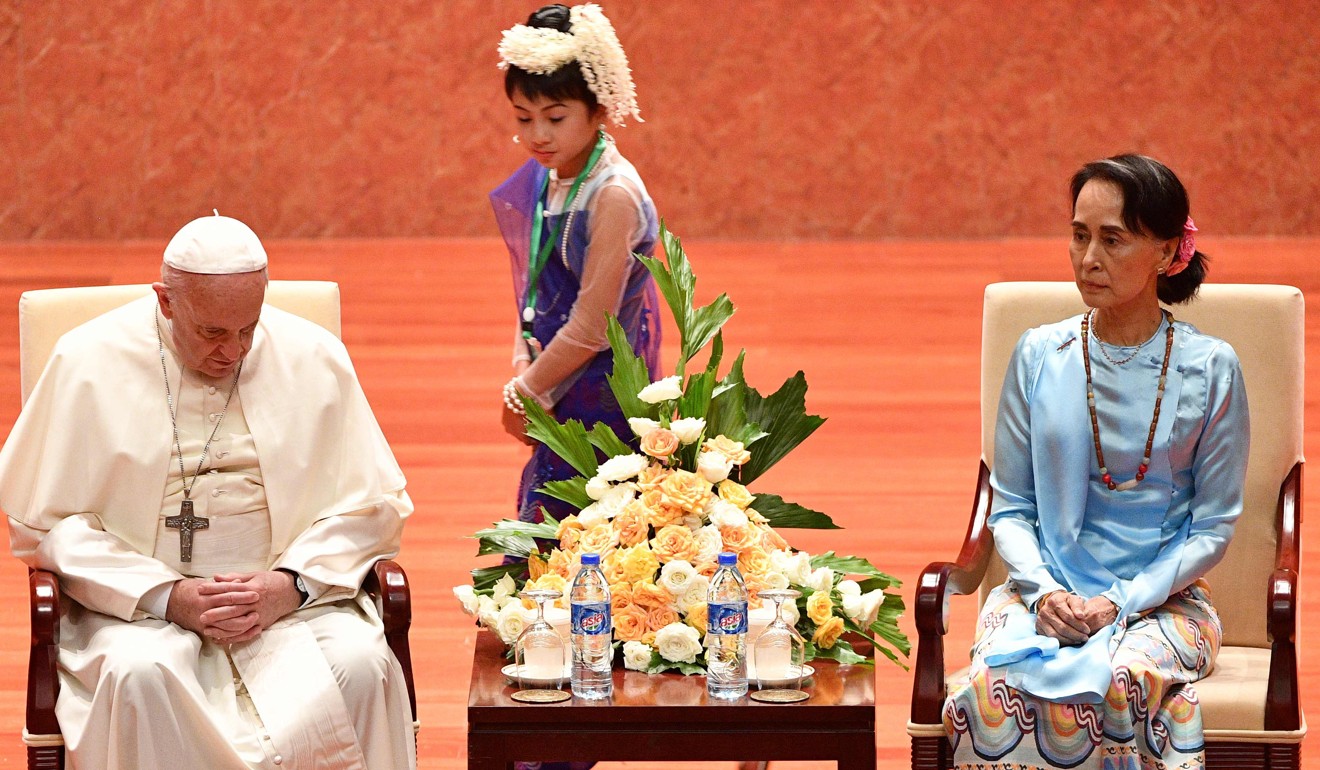
He also lamented how Myanmar’s people have suffered “and continue to suffer from civil conflict and hostilities”.
The word “Rohingya”, an incendiary term in a mainly Buddhist country where the Muslim minority are denied citizenship and labelled illegal “Bengali” immigrants, was absent from his speech.
Outside the country, Francis has repeatedly defended the group, some 620,000 of whom have fled to Bangladesh since August. Rights groups had urged him to tackle Myanmar on its treatment of the minority during his four-day visit.
Suu Kyi, a Nobel Peace Prize winner, has been ostracised by a global rights community that once adored her but is now outraged at her tepid response to the plight of the Rohingya.
She spoke of the challenges her country faces as it creeps out of the shadow of five decades of military rule, but also did not mention the Rohingya.
Myanmar’s government aimed to build the nation by “protecting rights, fostering tolerance, ensuring security for all”, she insisted in a short speech, that acknowledged concern over the “situation in the Rakhine”.
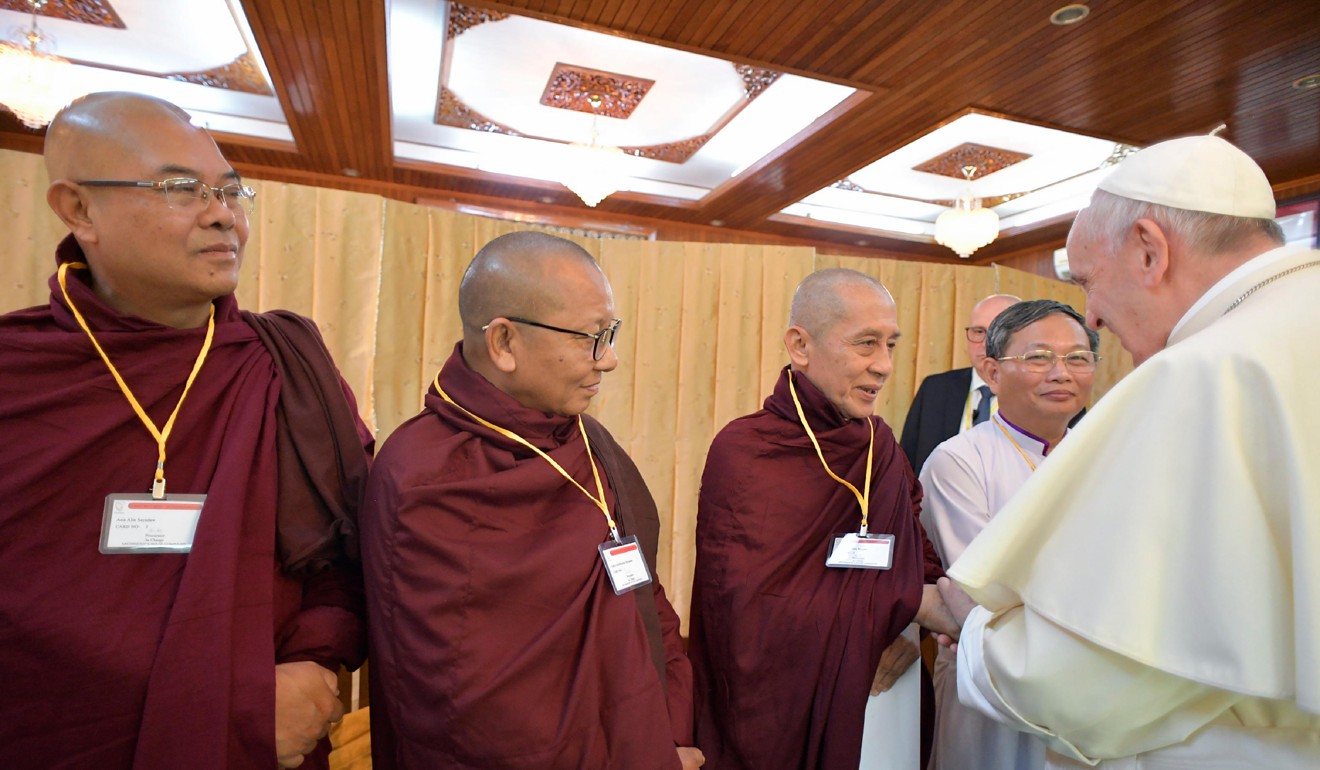
Late on Monday the 80-year-old pontiff received a “courtesy visit” from Myanmar’s powerful army chief – whose troops, according to the UN and US, have waged a campaign of ethnic cleansing against the Rohingya in Rakhine state.
Senior General Min Aung Hlaing has firmly denied allegations of widespread brutality by his forces, despite the flight of hundreds of thousands of people who have recounted widespread cases of rape, murder and arson.
His office said he told the pope there was “no discrimination” in Myanmar, and feted his military for maintaining “the peace and stability of the country”.
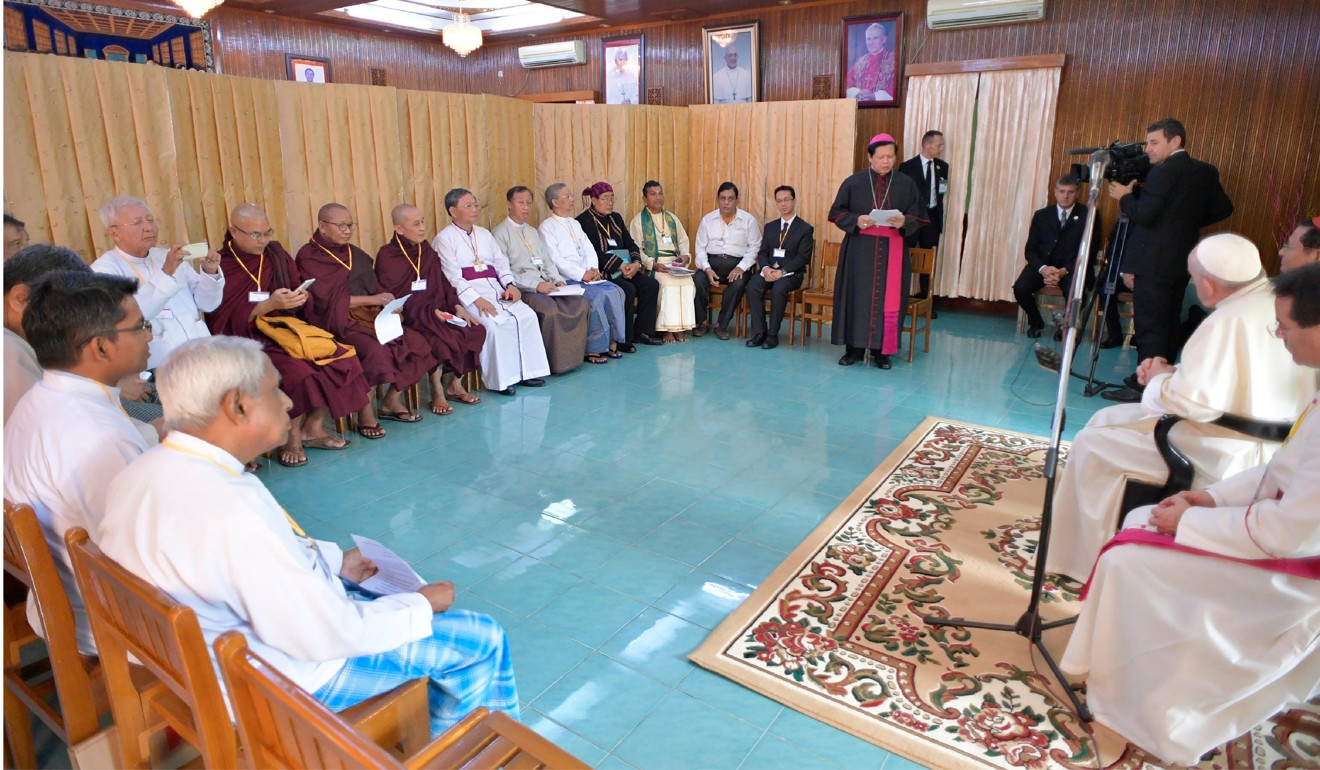
Early Tuesday the pontiff met leaders from Buddhist, Muslim, Baptist and Jewish faiths in Yangon.
The conversation centred around themes of unity and diversity, with the pope sharing a prayer.
Separately, Francis met controversial Buddhist teacher Sitagu Sayadaw, who has been criticised for using ethnic slurs against Muslims, particularly the Rohingya, and calling on people to shun them.
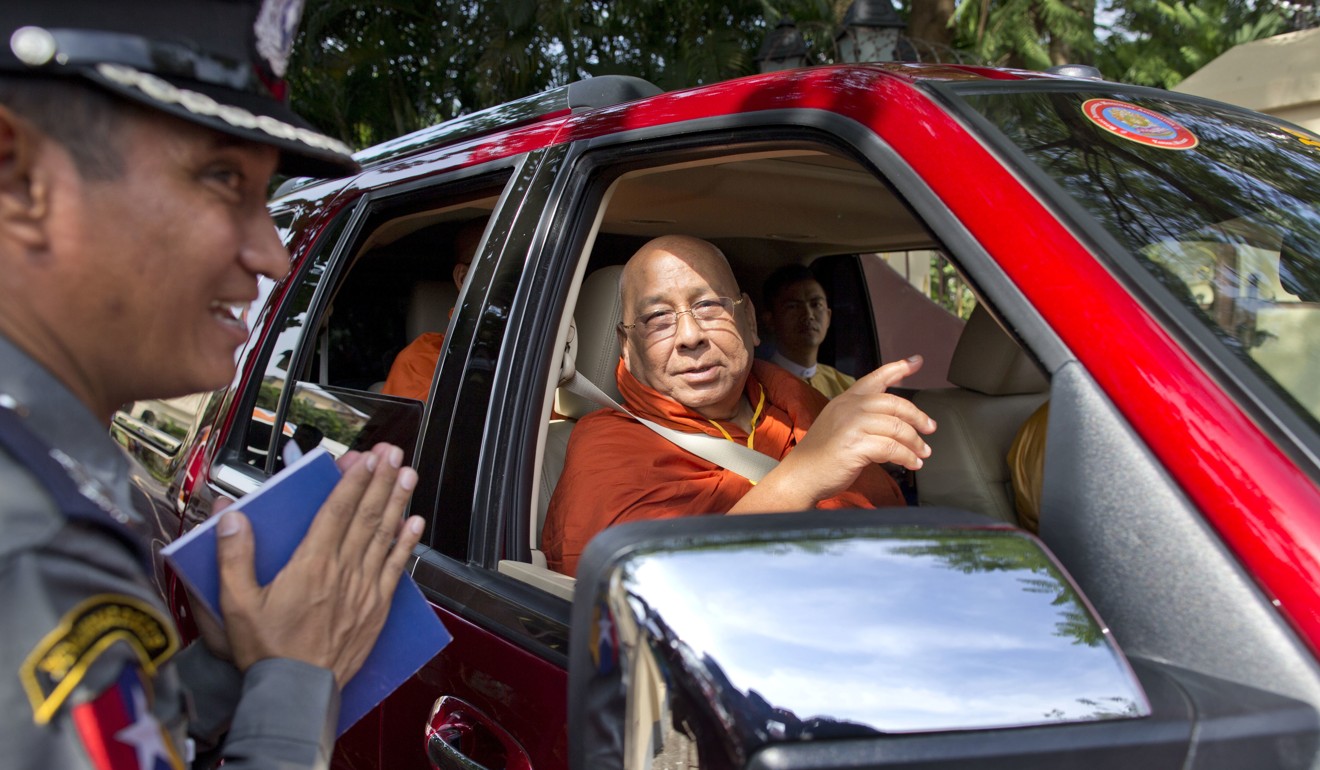
Sitagu, who received an award presented by Suu Kyi earlier this year, also met Francis’s predecessor, Benedict.
Francis’ failure to use the term “Rohingya” and his encouragement for Suu Kyi’s government disappointed Rohingya activists and human rights groups.
Phil Robertson, deputy director of Human Rights Watch’s Asia division, said he hoped the pope would use the term during mass on Wednesday.
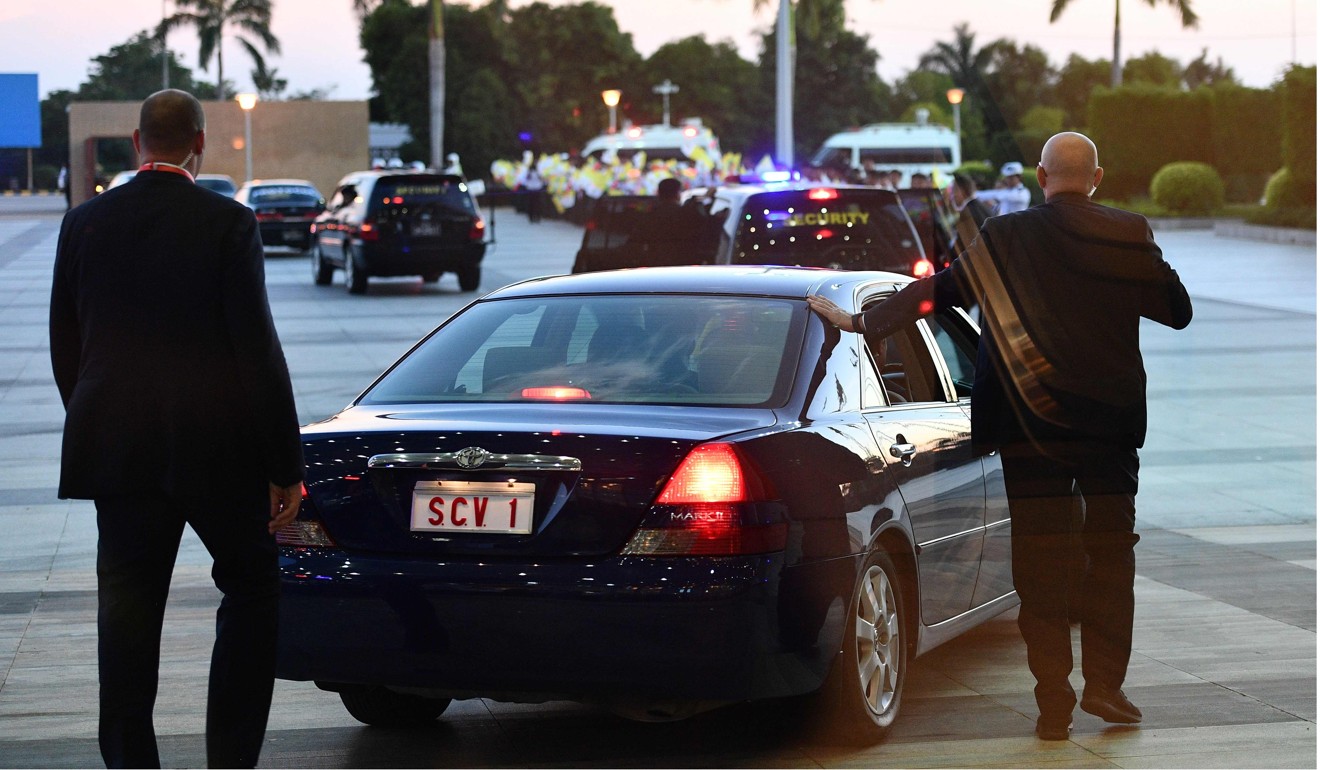
“The pope missed an opportunity to reinforce his previous messages that affirmed the rights of the Rohingya,” he said. “[They] have been stripped of so many things, but their name should never be one of them.”
Francis previously has prayed for “our Rohingya brothers and sisters,” lamented their suffering and called for them to enjoy full rights. As a result, much of the debate before his trip focused on whether he would again express solidarity with the Rohingya. Any decision to avoid the term and shy away from the conflict could be viewed as a capitulation to the military and a stain on his legacy of standing up for the most oppressed and marginalised of society, no matter how impolitic.

.png?itok=arIb17P0)